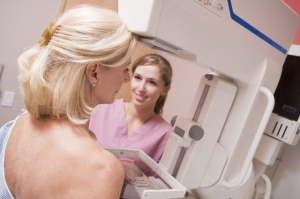por
Lauren Dubinsky, Senior Reporter | October 06, 2014
Three out of four people don't know that a woman with dense breast tissue has a higher risk of developing breast cancer, according to a new global study conducted by GE Healthcare. The survey included 10,000 respondents from 10 countries.
Within the medical community, it's known that women with dense breasts have a four to five times higher chance of getting breast cancer, yet that knowledge has not been disseminated to the general public. The survey found that only one out of five people globally has seen, heard of or read about dense breast tissue in the past six months.
"The results of this research highlight an opportunity to further encourage awareness of dense breast tissue and empower women to take an active role in their breast health," Dr. Jessie Jacob, chief medical officer of breast health at GE, said in a statement. "Although the importance of breast cancer screening is well-known, this survey suggests that dense breast tissue, a relevant risk factor, is not widely understood."
The respondents in the U.S., U.K., Australia and Japan were less aware about dense breast tissue increasing the risk of breast cancer than the respondents in Indonesia, Russia and China. It may be due to how much media coverage about breast density they were exposed to.
The survey also found that less than half of the respondents know what the most common symptoms of breast cancer are. Most of them — 71 percent and 61 percent respectively — knew that a lump in the breast and the armpit are symptoms. However, most weren't aware that breast discharge and changes to the breast or nipple are also symptoms.
"As we continue to make progress in general breast cancer awareness, it is always critical to reinforce basic information about the disease," Dr. Connie Lehman, professor and vice chair and section chief of breast imaging at the University of Washington Dept. of Radiology, said in a statement. "Understanding the symptoms of breast cancer is critical to supporting early detection of the disease."
Over half of the respondents knew that breast density can be determined by getting a mammogram but almost half also thought it can also be determined by self-exams for lumps and irregularities. This alludes to the need for more education around breast density.
"We believe that more education is needed around dense breast tissue and other risk factors so that women can have more informed discussions with their physicians about their individual risk profile and the management of their health," Jacob said in a statement.
Back to HCB News
